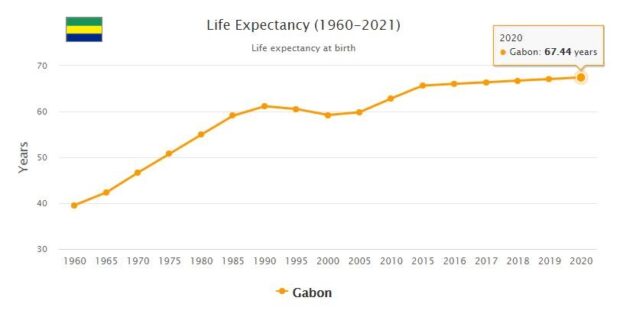Gabon is a country located in Central Africa, bordered by Cameroon, Equatorial Guinea and Congo. According to homosociety, it has a population of around 2 million people and an area of 267,667 square kilometers. The capital city is Libreville while other major cities include Port-Gentil and Franceville. The official language is French but many other languages such as Fang and Myene are also widely spoken. The currency used in Gabon is the Central African CFA franc (XAF) which is pegged to the US Dollar at a rate of 655 XAF: 1 USD. Gabon has a rich culture with influences from both African and French cultures, from traditional music such as Akoumou to unique art forms like Bwiti dance rituals. It also boasts stunning natural landscapes such as Loango National Park and Monte Alen National Park which are home to an abundance of wildlife species.
The lack of a plan for the holding of elections and agitation among the university students demanding more resources gave rise to further social unrest. The president responded again by closing the university, canceling elections and banning political meetings. The opposition called for a general strike that paralyzed Port Gentil, the center of the oil industry. Bongo was intimidated by the scale of the protests, reopened the university and lifted the ban on demonstrations.
In foreign policy, Gabon played a role as a mediator in regional conflicts – ia. the border dispute between Libya and Chad. Still, some of the government’s actions triggered diplomatic rubbish. In October 1992, Gabon declared, among other things, that it would expel 10,000 Nigerians who stayed in the country “in an irregular way”. See abbreviationfinder for geography, history, society, politics, and economy of Gabon.
In December 1993, presidential elections, which Bongo once again won, were held despite criticism from the opposition of irregularities. In February, new riots erupted, costing 30 people. From September to December 1994 negotiations were held in Paris, leading to the formation of a unifying government until the holding of free elections.
- COUNTRYAAH.COM: Provides latest population data about Gabon. Lists by Year from 1950 to 2020. Also includes major cities by population.
In a July 1995 referendum, the president got 96% of the vote for a constitutional reform that would govern the conduct of presidential and parliamentary elections. In the election to the National Assembly in December 1996, Bongo’s party got PDG 47 out of the 55 seats. In contrast, the opposition leader, Paul Mba-Abessole, won the municipal election and became mayor of the capital Libreville.
Due. oil export revenues are the country’s annual average revenue per year. $ 3,490. Still, the poverty indicators are alarming. In 1997, the average lifespan was only 55 years, 37% of the population was illiterate and the child mortality rate was 87 ‰.
In early 1998, the capital’s mayor, Mba-Abessole, asked the UN to oversee the planned presidential election that year to “prevent the unlawful re-election of Omar Bongo.” As expected, the president won over Mba-Abessole and his ally Pierre-Andre Kombila.
The president appointed Jean-François Ntoutoume Emane to the post of prime minister from January 1999. But at the same time fierce protests were taking place in the country, causing the government to shut down the schools and the University of Libreville.
The authorities asked for humanitarian aid from the UN because of the constant flow of refugees into the country. In October 1999, the UN estimated that there were 10,000 refugees in the country.
In July 2000, a cargo ship from Greece and one from France collided in Gabon’s territorial waters, and 400 tonnes of oil ran into the sea. Bongo requested international aid to cover the cost of the clean-up, which amounted to DKK 1.5 million. US $.
Like other countries in Central and West Africa, Gabon is involved in the trafficking of children who come mainly from Nigeria. The children sold in Nigeria work on plantations, in homes, in prostitution, or are sent out as street sweepers. It is envisaged that Gabon and 3 neighboring countries will sign an agreement on child trafficking in 2004, and after the conclusion of the agreement, the children will be sent to their home countries.
